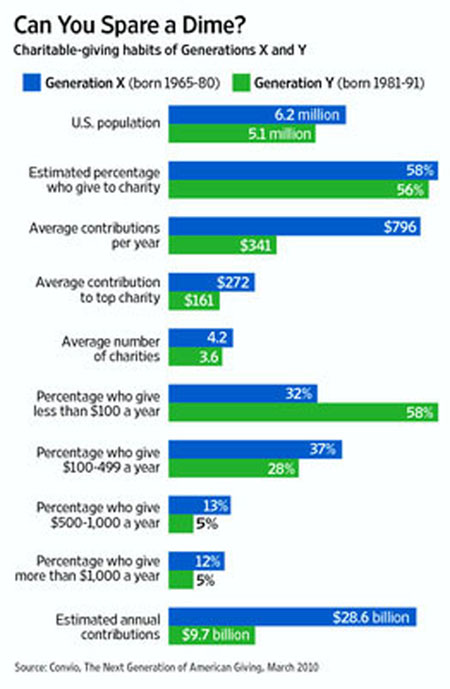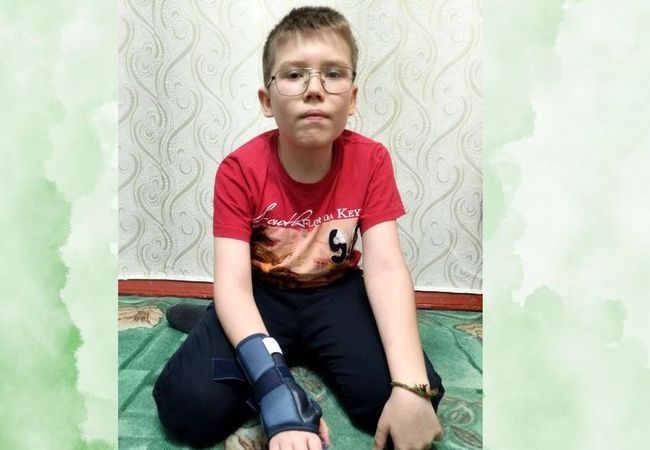
Two trends are behind this development, advisers say: the well-publicized pledge by billionaires Bill Gates and Warren Buffett to donate most of their fortunes to charity; and concerns that the broader transfer of wealth that's taking place could ruin the lives of many of the young recipients, causing them to quit working, for example, or to fritter away their inheritance.
"High-net worth families are increasingly concerned about how wealth will impact their children," says Julie Williams Lytle, the South Pasadena, Calif.-based executive director of philanthropic services at Whittier Trust Co.
She says many are hoping that educating children about philanthropy will mitigate some of the risks their heirs face from having too much.
Families who want to teach their heirs about giving are increasingly turning to philanthropy experts and financial advisers for tips on how to start the dialogue. And some are asking advisers to hold family meetings to teach the younger generation advocacy skills.
Start Small and Simple
Nathan Dungan worked with a family whose teenage son's eyes glazed over anytime the parents asked about what type of volunteer work he'd like to do. But when their son's friend died, he organized a food drive in the friend's honor to benefit a local shelter.
The parents were shocked and thrilled, says Mr. Dungan, the creator of Share Save Spend, a Minneapolis-based educational company created to help families develop healthy financial habits. "The point is to stay the course even if they don't appear interested at first," he says.
"Start small and keep things simple," says Mr. Dungan. Parents can invite their child to sit with them as they write a check to a charity they support. They might tell the child about the good feeling they get from sharing.

The conversation about the importance of giving can be spontaneous and happen in a casual setting. In the car, for example, a parent might ask the teen what cause they would support if they had extra money to donate. "It's about planting a seed," says Mr. Dungan.
If the child wants to help hungry children in Africa, on the child's birthday or another special occasion, parents might give them a check to donate to the cause they researched, Mr. Dungan says.
He has encouraged generous grandparents to support the next generation's giving by matching a child's check 2-for-1. This not only supports the child's charity and reinforces positive feelings about giving, but teaches them the impact of pooling resources, he says.
But whether the donation is for $50 or $5,000, what's most important is that parents start having these conversations, Mr. Dungan says.
Bring the Kids Along
Volunteering with children can be a very effective way to pass down philanthrophic values, says Dwight Burlingame, associate executive director and director of academic programs at the Center on Philanthropy at Indiana University.
If the child is interested in helping animals, volunteering with him or her for a few hours at a local animal shelter reinforces the idea that the family cares about helping others, Mr. Burlingame says.
He says these shared volunteer experiences often stay with children and make it easier for parents to discuss philanthropy with their children in the future.
Ted Cronin, chief executive and chief investment officer of Manchester Capital Management LLC, in Manchester, Vt., recommends clients take their children on site visits to the nonprofits the family supports.
After the young-adult daughter of Mr. Cronin's client visited a charity in Africa, her parents reported that she became more empathetic and committed to helping others. "It made an impact," Mr. Cronin says.
Families who don't have money or time to fly across the world can turn to websites such as learningtogive.org, says Mr. Burlingame, who is a member of the site's board of directors. The site offers free lessons about philanthropy to parents, educators and students from kindergarten through 12th grade, he says.
Family Meetings
Facilitating family meetings are one way advisers are helping clients pass on their philanthropic values to the next generation, says Janine Racanelli, head of the New York-based J.P. Morgan Private Bank Advice Lab, a unit of JPMorgan Chase & Co., which develops analytical tools that help high-net worth individuals and families.
In a meeting, an adviser may gather several generations of a clients' family and initiate a conversation about their individual and collective philanthropic goals.
To teach the younger generation advocacy skills, Ms. Racanelli may recommend heirs research a cause and then make a "pitch" to their family to obtain funds from the family's foundation or donor-advised fund.
Ms. Racanelli also says some families ask heirs to commit a certain amount of volunteer time to a cause before earning a board seat on the family foundation.
She says this gives heirs a first-hand look at a cause that can be very educational in teaching them the value of philanthropy.
Changing Priorities
"Top-down giving"—where the family's philanthropy is often dictated by the older generation and then taken over by the younger one—is taking a back seat with many clients, says Ms. Racanelli.
In many cases, the younger generation is now identifying and exploring causes they feel deeply about and then educating their parents who may then support those causes, she says.
Cassidy Burns, a Minneapolis-based certified financial planner, has encouraged many of her clients to take a more collaborative approach in teaching philanthropy to their heirs.
"When generations can recognize and appreciate that they approach giving differently," she says, "they can begin to learn from one another and everyone benefits."
Ms. Dagher is a reporter for Dow Jones Newswires in New York. She can be reached at veronica.dagher@dowjones.com.



